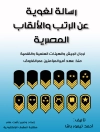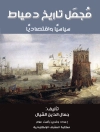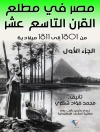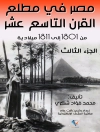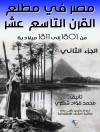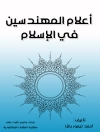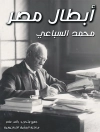This edited collection provides an in-depth analysis of the imperial, colonial, and postcolonial history of tobacco from 1780 to 1960, which was one of the major periods of change in the global tobacco economy. It brings together case-studies from known and lesser-known tobacco regions of the world to interrogate tobacco’s ‘second globalisation’, a concept little employed by historians thus far, but one which encapsulates tobacco’s central role in Europe’s imperial expansion beyond the Atlantic and the social, political, and cultural transformations of global capitalism taking place during the period. The collection fills a gap in the study of commodities of empire, which has examined tobacco primarily for the early modern Atlantic world, or for single empires during the later period. It invites comparison across borders, encompassing political, economic, and sociocultural history, and, with a particular emphasis on trade, knowledge, and labour, juxtaposes micro-histories with a macro-historical perspective. Together, the studies in the volume testify to the importance of tobacco in new places and among new players, challenging the confines of national and imperial historiographical frameworks. They demonstrate the rising dominance of new powerful forces, including transnational corporations, but also a wide range of actors in conflict and negotiation within territorial and imperial confines. By systematically taking into account the agency in Europe’s apparent peripheries and the Global South, they critique a simple assumption of the dominance of the West.
Chapter 11 is available open access under a Creative Commons Attribution 4.0 International License via link.springer.com.
Содержание
Chapter 1: Introduction: Tobacco’s Second Globalization; Alexander van Wickeren, Jean Stubbs, and William Gervase Clarence-Smith.- PART I: Trade.- Chapter 2: Liberalising Tobacco in the Philippines during the Nineteenth-century Late Spanish Colonial Period; Xavier Huetz de Lemps and María Dolores Elizalde.- Chapter 3: The Resilience of Hand-rolled Cigarettes: Marketing Imported Tobacco in East Africa, 1880-1939; Laird Jones.- Chapter 4: Prosumption as Glocal History: Production and Consumption of Cigarettes in Egypt, 1890-1939; Relli Shechter.- Chapter 5: Imperial Markets: The Anglo-Rhodesian Tobacco Trade in the Aftermath of World War II; Sibanengi Ncube.- PART II: Knowledge.- Chapter 6: Imperial Rivalries and Agronomic Reform: Tobacco Plantations in the Venetian Ionian Islands and Dalmatia, 1760s-1790s; Guido Cioni.- Chapter 7: Knowledge and Politics: The León y Castillo Brothers and the ‘Cuban Model’ of Tobacco in the Canary Islands, 1852-1914; Santiago de Luxán Meléndez and María de los Reyes Hernández Socorro.- Chapter 8: Tobacco Fantasies in German Southwest Africa, 1884-1915; Martin Kalb.- Chapter 9: Mechanising the Greek Tobacco Industry: Worker Knowledge, Protest, and Territorial Expansion, 1890-1925; Christos Karampatsos and Nikolaos Alexis.- Part III: Labour.- Chapter 10: Tobacco Contestations: State, Planters, and Peasants in Besoeki Residency, East Java, in the Mid-nineteenth to Early-twentieth Centuries; Ratna Saptari.- Chapter 11: State Labour Control and Women’s Resistance in Austro-Hungarian Transylvania Tobacco Manufacturing, 1897-1918; Alexandra Ghit.- Chapter 12: Global Labour and Management Migrations: BAT-China, 1910s-1930s; Nan Enstad.- Chapter 13: Palestinian Fellahin Tobacco ‘Smuggling’ under Late Ottoman, British and Israeli Rule; Basma Fahoum.- Chapter 14: Afterword: Tobacco’s Glocal Worlds; Kathinka Sinha-Kerkhoff.
Об авторе
Alexander van Wickeren is a Research Coordinator for the Faculty of Cultural Sciences at the University of Applied Sciences in Cologne, Germany.
Jean Stubbs is an Associate Fellow of the Centre for Latin American and Caribbean Studies at the University of London’s School of Advanced Study, in the UK, and Professor Emerita of London Metropolitan University.
William Gervase Clarence-Smith is Emeritus Professor of History at SOAS University of London, in the UK, and Fellow of the Royal Historical Society, and the Royal Asiatic Society.


